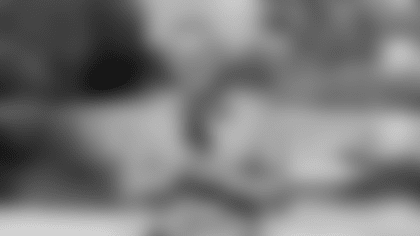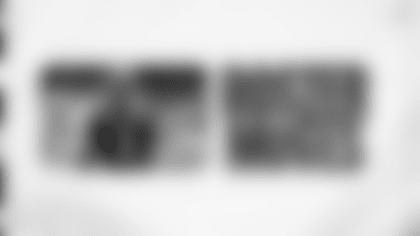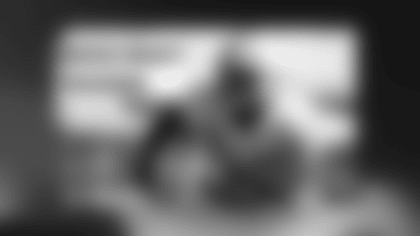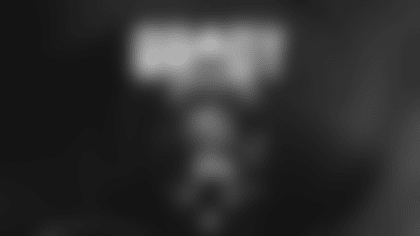INDIANAPOLIS -- Los Angeles Rams head coach Sean McVay was the first man to speak at the 2019 NFL Combine Thursday morning and it's no surprise his team's last game – the Super Bowl LIII loss to the Patriots in Atlanta – was a major talking point.
One of the first things McVay was asked about in regards to the disappointing 13-3 defeat to New England was the scheme changes that Bill Belichick and Brian Flores came up with on defense that stymied one of the NFL's most productive offenses. The young offensive coach explained what stood out and impressed him both in terms of the alterations to the front and the coverage.
"Very impressed. Really I think what they did such a nice job of is they played a loaded front structure, which is something that we expected," McVay said. "They went with really, the early downs, more of a top-down principle, where they were playing quarters structures, similar to what Chicago had success with. But Chicago mixed that up and did some other things. They kind of exclusively stayed in that in those early downs and distances, unfortunately we didn't really ever make them pay."
And a Patriots team that played mostly man coverage most of the season and certainly in playoff wins over the Chargers and Chiefs turned to primarily zone looks in the Super Bowl. The result was the Rams punting on eight straight drives to open the game.
"That's where it's a great opportunity for you No. 1 as a coach to look inwardly and say how can we use these as learning opportunities to make sure that if these things do come up in the future we're putting our players in a position where they are better ready to execute on the fly and adjust," McVay said. "They were mostly playing more man principles against teams like the Chargers and Kansas City in the playoffs and they played a little different front structure. Basically against the Chiefs in the AFC championship it wasn't until like the 22nd or 23rd snap that you even saw a snap of zone. They did an excellent job and that's what makes them great coaches. You have to tip your hat off to those guys."
Sounding far more confident than past Super Bowl-losing coaches have at the Combine, McVay is focused on improving from the loss.
"Every single week provides a learning opportunity, whether it be good or bad. The Super Bowl was a great experience," McVay explained. "I think any time that you are navigating through a two-week preparation there are always some different elements when you look back you say, 'alright this worked out and this didn't.' A lot of it entails the feedback that you get from the players and coaches if you are fortunate to get in that situation again. Certainly learned a lot. When you go into those situations heavily leaned on our coaches that had been a part of those games before. I felt good about our process and our structure and then more specifically than anything else when you get into a game like that you expect to adjust and adapt better. But that's what is exciting and motivating moving forward. But whether we had won or lost you'd like to think that motivation remains the same and you know you have to start fresh moving in the next year."
In the end, McVay needs to try to do something that's been historically difficult in the NFL – bounce back from a Super Bowl loss. Though the Patriots themselves returned from the loss to the Eagles in Super Bowl LII to beat the Rams a year later, they were the first Super Bowl loser to return to the game the following season since the Bills in the early 1990s and the first to win it since the Dolphins in the early 1970s.
How does McVay plan on avoiding the so-called Super Bowl hangover?
"I think the biggest thing is you want to make sure that as a coaching staff and me specifically in my role is you want to demonstrate that mental toughness and that ability to move on like we expect our players to," McVay said. "And you understand I think when we get a chance to reflect back on the season a lot of really good things that we can take away from it but the focus for us is going to be we learn from the past, we produce in the present and you want to prepare for the future. But every single season is a new opportunity. I think the thing that's exciting for me specifically and for us as a coaching staff is you love the process of what the entire year entails. That's the Combine. That's evaluating your scheme. That's evaluating other things. That's looking at, OK what can we as coaches to get better and implement a plan specific to the offseason program and how we attack that process to get better, to emphasize our players' strengths and hopefully put ourselves in position the way we do the offseason and training camp to go win our opener. That's really what our focus and concentration will be on. I think you never let the complacency set in. In think we share that as players and coaches."
































